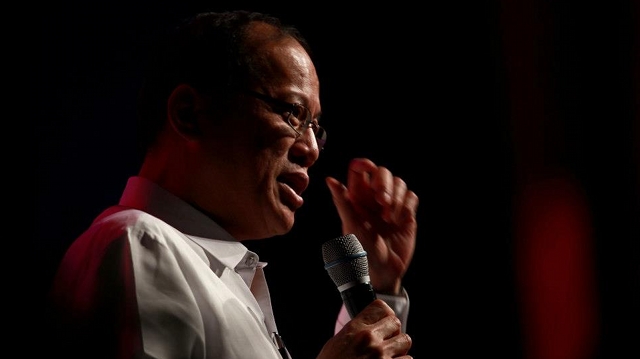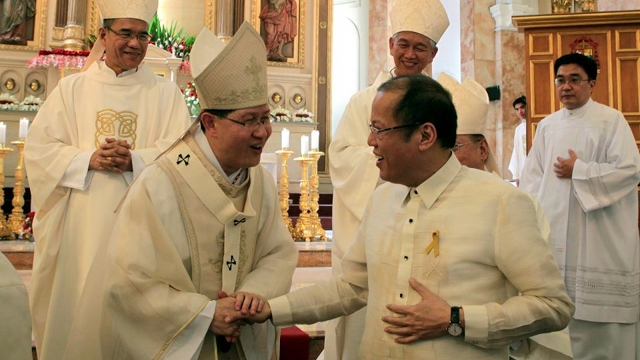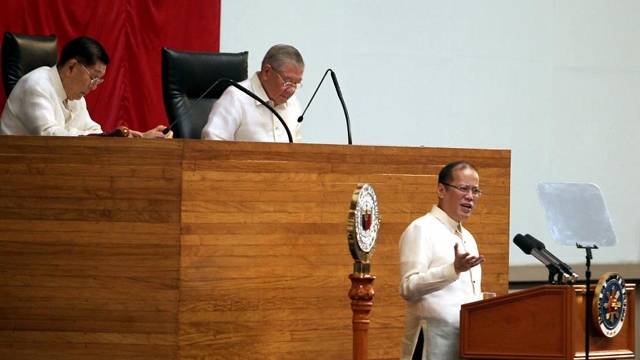SUMMARY
This is AI generated summarization, which may have errors. For context, always refer to the full article.

MANILA, Philippines – A presidential campaign and two years as chief executive later, there is no more doubt. Benigno Aquino III supports the Reproductive Health (RH) bill.
While then presidential candidate Aquino refused to give a simple yes or no answer to questions on his stand on the bill, now the President is certifying it as urgent.
What took him so long?
The reason for the initial hesitation is clear. In his campaign and in his presidency, Aquino faced criticism from Catholic bishops every time he voiced support for the bill’s contents, with Church leaders repeatedly warning against the so-called Catholic vote.
The Catholic Church is staunchly against the measure that seeks to provide access to both natural and modern family planning methods like contraceptives. Bishops believe it promotes a contraceptive mentality and promiscuity while proponents argue that it is for women’s rights and health, and informed choice.
Amid the tug of war, Aquino’s pronouncements and actions evolved over the years. Here’s how:
1. ‘We support the position called Responsible Parenthood.’
Since the 2010 campaign until his presidency, Aquino has preferred the safer term “responsible parenthood” over reproductive health.
“We support the position called responsible parenthood. For those whose consciences are satisfied and who do not have the means for artificial family planning methods, we should make that available,” then presidential candidate Aquino said in February 2010.
Catholic bishops including those who supported Aquino’s mother expressed dismay with his statements. The late President Cory Aquino was a devout Catholic and established close ties with religious leaders.
Despite Aquino’s preference for “responsible parenthood,” advocates listed him among the candidates most supportive of the RH bill. They said that with him in office, the bill pending for over a decade in Congress will have a fighting chance of being passed.

2. CBCP dialogue and ‘risking excommunication’
Aquino’s election did not immediately spell victory for the RH bill. In the early months of his presidency, Aquino sought a compromise by engaging in talks with the Catholic Bishops’ Conference of the Philippines (CBCP).
Cabinet members met with the CBCP leadership including then Imus, Cavite Bishop and now Cardinal Luis Antonio Tagle in Malacañang “to see their concerns, how it can fit into the position of the President,” said the Palace.
Presidential Spokesperson Edwin Lacierda said Aquino wanted to make his 5-point position on responsible parenthood “very clear” to the bishops:
- I am against abortion.
- I am in favor of giving couples the right to choose how best to manage their families so that in the end, their welfare and that of their children are best served.
- The State must respect each individual’s right to follow his or her conscience and religious convictions on matters and issues pertaining to the unity of the family and the sacredness of human life from conception to natural death.
- In a situation where couples, especially the poor and disadvantaged ones, are in no position to make an informed judgment, the State has the responsibility to so provide.
- In the range of options and information provided to couples, natural family planning and modern methods shall be presented as equally available.
The talks led nowhere. In May 2011, the CBCP announced it was withdrawing from the dialogue “with finality.”
“In as much as President Benigno Aquino has already publicly declared his intention to implement his own 5-point agenda on responsible parenthood, the bishops do not see any reason to further undertake a serious study or dialogue on HB 4244 with the administration,” the CBCP said.
Yet even before the CBCP called it quits, Aquino already drew the line.
In April 2011, he said, “I am resolved to enact into law the principles of Responsible Parenthood. I am aware there are those who oppose this but it is my duty as our country’s leader to reach out to all sectors … even if there are those who have said that I should be excommunicated.”
“Ultimately, I need to make a stand. I need to follow my conscience, and I need to do what is right.”

3. Half-baked priority?
A year into his presidency, Aquino finally included the RH bill in his list of priority measures submitted to the Legislative-Executive Development Advisory Council (LEDAC) in August 2011.
Despite the move, the RH bill remained in legislative limbo months later. In July 2012, Aquino gave Congress another cue, including it for the first time in his State of the Nation Address.
In discussing the lack of classrooms and facilities for public school students, Aquino got a standing ovation when he said, “Sa tingin ko po, Responsible Parenthood ang sagot dito,” he said. (I think Responsible Parenthood is the answer.)
The statement still sent mixed signals, with RH critics like Senate Majority Leader Vicente “Tito” Sotto III insisting that Aquino did not say “reproductive health bill” even if responsible parenthood is part of the measure’s title.
In August, Aquino called a multi-party caucus with members of the House of Representatives. His directive was to end the period of debates to move the bill forward. Still, lawmakers said the President only asked them to make a “conscience vote.”
4. Stingy with urgent bills
Asked in November about calls to certify the bill urgent, Aquino said, “As a general rule, alam naman niyo napakatipid ko mag-certify ng urgent kaalinsunod nung nakalagay sa Saligang Batas na ‘yung nilalagay ‘yung alituntunin kung kailan puwedeng maging urgent. So hindi basta-basta ‘yon na ilalagay na urgent.”
(As a general rule, you know I am so stingy with certifying bills as urgent consistent with the Constitution’s requirements for doing so. So we can’t just certify any bill as urgent.)
By then, Aquino already certified other measures like the sin tax reform bill and the 2013 budget urgent.
In a meeting with House members this month, Aquino finally made his stand clear. The Palace said, “The President began his remarks by telling the gathered representatives that, if he were still a member of the House, he would vote for the Responsible Parenthood Bill.”
Push came to shove a week later on the eve of a historic vote in the House to pass the bill on second reading. Aquino’s Liberal Party called a meeting where it explicitly urged members to support the President by voting for the bill.
The House narrowly approved the bill, the farthest it has ever gone in the long road of legislation. Advocates gear up for the 3rd reading vote and Senate voting on 2nd and 3rd reading next week, with only 3 session days left before the Christmas break.
Finally, Aquino saw it as the best time to go for the kill. Certifying the bill as urgent allows the Senate to vote on 2nd and 3rd reading on the same day in time for the break.
Reflections on a 16-year-old mother
Why does the President support the RH bill? In his speeches on the measure, he is fond of going back to a personal experience: meeting a teenage mother in Baseco compound in Manila.
“At 16 years old, she already has two children. How can she manage to feed the kids, or to send them to school, given that she and her husband don’t have jobs?”
“Who is responsible for this? What pushed them into this situation? How did such heavy responsibilities end up on their shoulders?”
“And the most important question: What can I do about this?” – Rappler.com
Add a comment
How does this make you feel?
There are no comments yet. Add your comment to start the conversation.